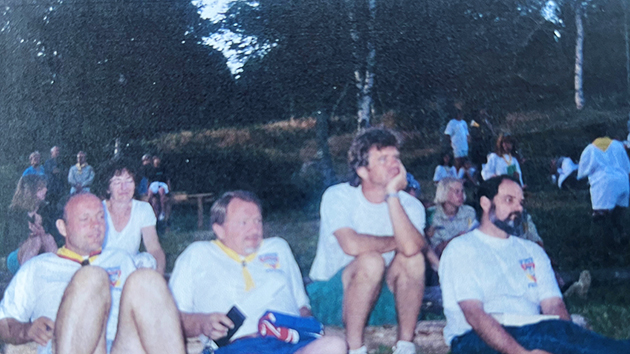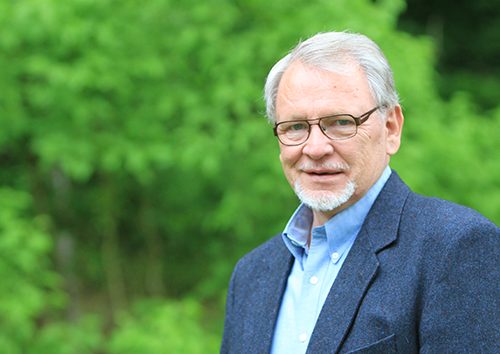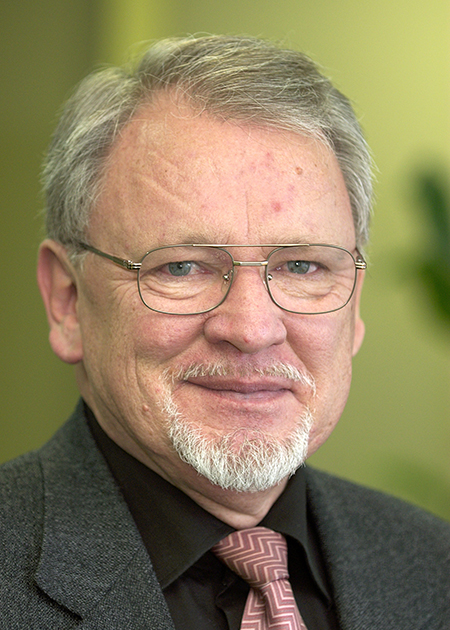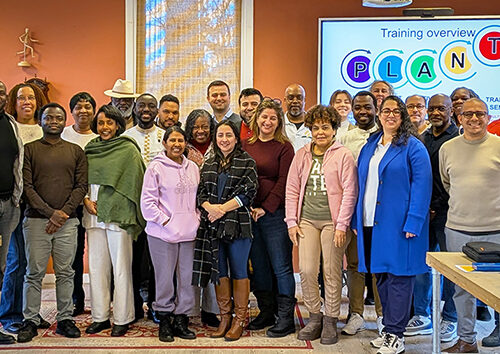28 September 2023 | St. Albans, UK [David Neal]
Pastor Ole Kendel, former Trans-European Division (TED) Youth and Family Life director, passed away on 31 August. Suffering for the previous nine years with Alzheimer’s disease, he was able to live at home with his wife, Birthe, until the last few hours of his life.
Danish by birth and born on 5 February 1945, Kendel trained as a Physiotherapist at Skodsborg Sanatorium (Denmark) in 1967. Shortly after, in 1969, he received a six-year call to serve as a Physiotherapist at the Adventist-run Masanaga Leprosy Hospital in Sierra Leone.
On his return from Sierra Leone, he began training for pastoral ministry at the then Newbold College (Newbold College of Higher Education), graduating in 1982. His time in pastoral ministry was brief, with a quickly recognised gift for connecting with youth, serving in Denmark and Norway as Youth director. It was a ministry focus that spanned 15 years from 1985 to 2000.
Elected to serve as Youth and Family Ministries Director for TED in 1990, also elected with him was Birthe his wife. According to his predecessor Jim Huzzey (TED Youth Ministry director 1980-1990), “He and Birthe brought a fresh breath of life to the Division office when they came as a very successful team as Youth director and Children’s Ministries director.”
Paul Tompkins, Kendel’s successor (TED Youth Ministry director 2000-2015), regarded him as a pioneer – particularly in the creation of “the big impact events now to be seen at every General Conference (GC) Session”. Kendel’s burden for the 1995 GC Session, held in the Netherlands city of Utrecht, was that while the many thousands of delegates discussed and debated church matters, what connection, what witness (if any), would be made with Utrecht people? ‘Impact Utrecht’ was a first, with approximately 250 youth and their leaders participating worldwide. And ‘impact’ those streets they did, with music, drama, mime, leaflet distribution, and evening concerts in the local Utrecht church. From this lead, more ‘impact events’ followed and do so to this day.
With TED experiencing membership growth, so did not only the size of the events but also their variety. Tompkins (British Union Conference Youth director at the time) recalls “Camporees, youth congresses, and mission projects.” Notable was the 1990 youth mission project to the Albanian city of Korce when the country was recovering from being a ‘closed country’ under the leadership of Enver Hoxha. “It was a big project”, recalls Tompkins, “but by the grace of God, it was finally completed, and the church still stands to this day.” “He will be remembered by youth from many countries”, adds Huzzey, “whose lives were changed on his numerous volunteer building projects, including Pakistan and Nicaragua.”
Empowerer and Equipper
In addition to organising the big events, Kendel was dedicated and committed to ensuring Union and Conference youth directors were well equipped for their challenging ministry role. In 1996 (or possibly 1997), he organised a field trip to the US to visit several youth ministry conventions (‘Giraffe University’ organised by the Centre for Youth Evangelism and ‘Youth Specialties’ an Evangelical youth leadership convention in Chicago). In addition to the exposure and training, he was building a team of leaders to serve with excellence in their respective unions and conferences. Many of his youth ministry proteges went on to serve as presidents of missions, conferences, and unions.
Among them was Thomas Müller (president of the Danish Union Conference). “Ole was a fantastic mentor to me, and as a young pastor, drew me into different leadership situations, giving me responsibilities he did not need, but saw it as an investment in the next generation.” Paul Tompkins agrees, “By association, I learned from him on the job how to approach the big projects.”
Following his time in Youth Ministry, Kendel was elected as President of the Pakistan Union Section from 2000 until 2003. He went on to serve the church in Denmark, including serving as president (2004 – 2007) and then in pastoral ministry until retirement in 2015.

Kendel’s character – exceptional
Every person employed by the Seventh-day Adventist Church has a ‘service record’ which includes the position, employing organisation, and length of service. But what is not recorded is the character of the individual.
Des Boldeau (South England Conference Youth and Pathfinder director during the 1990s) remembers Ole (as he was known to colleagues) as “a kind and sensitive soul with a ‘wicked’ sense of humour, and with a chuckle that reverberated throughout his entire body. When he laughed, his whole body laughed with him.” Müller agrees that “he had a humorous and quirky angle on many things, always creating a good atmosphere, and caring of those around him. Boldeau also notes that Ole’s sensitivity “was particularly appreciated in the context of the race issue.”
Jim Huzzey remembers Ole’s “thoughtful, quiet approach to ministry, with an appreciation for diversity, and dedicated to listening and understanding the needs of the young – for which young people loved him.” Paul Tompkins “found Ole extremely approachable, supportive, and always helpful. He did his job well but never acted self-important. I saw him as a humble, God–fearing, lovely Christian man.”
Paul, Thomas, Des, David and many more who came under Ole’s influence, as a humble, loving leader, one who mentored and modelled what it means to be a team player, with Jim Huzzey can say, “I count it a privilege to have known and worked with him.”
To Birthe, daughters Anette and Fay, grandchildren, and the wider family, thank you for sharing Ole with a generation of youth and leaders whom he was passionate about serving – for the sake of knowing Christ and building up the church.
Maranatha!
Thanks to Jim Huzzey, Paul Tompkins, Thomas Müller, and Des Boldeau for their contribution to this report. [Photos: Courtesy of Thomas Müller and Paul Tompkins]




